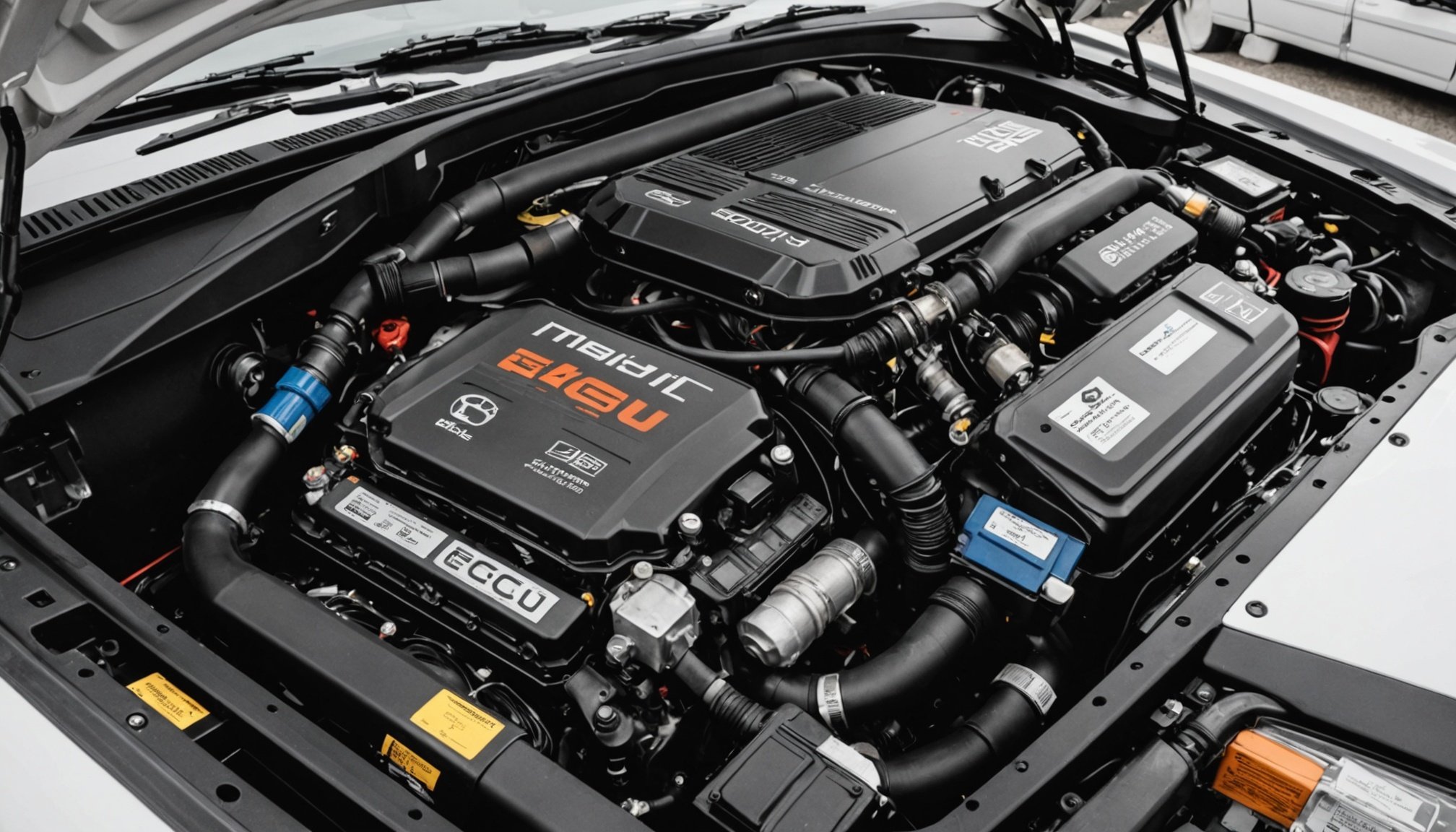Modern vehicles are more complex than they’ve ever been, with a large number of electronic systems working in harmony to keep your car performing at its optimal level. One such key component is the Engine Control Unit (ECU), a kind of automotive brain that manages everything from fuel consumption to power output. As such, it’s no surprise that the ECU has become a popular target for tuners looking to maximise the performance of their cars. However, reprogramming or ‘remapping’ an ECU isn’t a process to be taken lightly. We will explore the best practices for reprogramming an ECU, specifically focusing on UK-made performance cars.
Understanding the ECU and the Remapping Process
The essential first step when considering ECU remapping is understanding exactly what the ECU is and what the remapping process entails.
Also read : How to install heated seats in a British classic car without altering original wiring?
The ECU is essentially the vehicle’s brain. It takes in data from various sensors throughout the car, then uses this information to control aspects such as fuel injection, ignition timing, and turbocharging, all in real-time. This fine-tuning of the engine’s parameters allows for optimal performance, fuel efficiency, and emissions control.
Remapping the ECU involves altering these parameters to suit a driver’s individual needs, whether that be to increase power, improve fuel efficiency, or optimise the car for a particular type of driving. It involves using specific software to rewrite the engine map, changing how the engine responds to input from the driver and the environment.
Also read : How to configure the air suspension of a British SUV for various terrains?
The process is complex and requires a deep understanding of vehicle mechanics and software. It’s not a DIY job, and it should only be carried out by a professional tuner with experience in ECU remapping.
Choosing the Right Tuner
Selecting a qualified tuner is a critical step in the ECU remapping process. The wrong choice could lead to poor performance, damage to your engine, or even void your vehicle’s warranty.
Here’s what you should consider when choosing a tuner. Firstly, look for a professional with a deep understanding of ECU software and engine mechanics. They should have a proven track record of successfully remapping ECUs for vehicles that are similar to yours.
Next, consider their equipment. They should use industry-standard software and have access to a dynamometer, also known as a ‘dyno’. A dynamometer measures the power output of your engine, and it’s essential for accurately tuning your car and ensuring that the remap is successful.
Finally, ensure that the tuner offers some form of warranty. Remapping the ECU inherently carries some risk, and a good tuner will offer a warranty to protect you in case anything goes wrong.
The Actual Remapping Process
The actual process of remapping the ECU is technical and complex. However, knowing what happens can give you peace of mind and ensure you understand what your tuner is doing.
Initially, the tuner will conduct a full diagnostic check of your vehicle, ensuring that everything is in good working order. Any existing issues could affect the remapping process and potentially damage your engine, so this step is vital.
Next, the tuner will read the existing map from your ECU and make a copy. This copy is crucial; it allows the tuner to revert to the original map if anything goes wrong during the remapping process.
The tuner will then adjust the ECU’s parameters using their software. The specific adjustments made will depend on your specific needs and your vehicle’s capabilities.
Remapping a BMW Performance Car
As an example, let’s take a look at the process of remapping a BMW, one of the UK’s most popular performance car brands. The ECU in a BMW is a highly sophisticated piece of equipment, capable of making a host of adjustments to the engine’s operation in real-time.
A professional tuner will use proprietary BMW software to remap the ECU, allowing them to adjust aspects such as the fuel-air mixture, the ignition timing, and the turbo boost pressure. These adjustments, when done correctly, can drastically improve the BMW’s performance, making it quicker, more responsive, and more enjoyable to drive.
However, the BMW ECU is also a highly sensitive piece of equipment. Incorrectly adjusting its parameters can lead to poor performance, excessive fuel consumption, and even engine damage. Therefore, it’s crucial to choose a tuner with specific experience in BMW remapping.
The Results of Remapping
The results of a successful ECU remap can be dramatic. You may notice improved throttle response, greater torque and power, increased fuel efficiency, and better overall performance. However, it’s important to have realistic expectations. While a good remap can significantly improve your car’s performance, it won’t transform a standard vehicle into a supercar.
Moreover, it’s essential to remember that remapping isn’t without its risks. The process can potentially void your vehicle’s warranty, and if done incorrectly, it can damage your engine. Therefore, it’s crucial to choose a reputable tuner and follow the best practices outlined in this article.
As technology continues to advance and cars become ever more complex, the ECU will undoubtedly become an even more critical component in vehicle performance. Understanding what it does and how to properly remap it is knowledge that every performance car enthusiast should have.
Adjusting for Optimal Performance
Fine-tuning the ECU requires a delicate balance of adjustments to various different parameters. This balance is essential to ensure that the adjustments made do not negatively impact the car’s performance and fuel efficiency.
The aim of ECU remapping is to make alterations that optimise the performance of the car according to the driver’s specific requirements. For instance, if increasing power is the main goal, the tuner may alter the fuel-air mixture to allow for greater combustion, thereby producing more power. On the other hand, if the goal is to increase fuel efficiency, the tuner might adjust the ignition timing to ensure fuel is burned at the most efficient point.
In the case of turbocharged cars, the tuner could adjust the turbo boost pressure to increase power. However, a more aggressive turbo boost could potentially lead to increased wear and tear on the engine. Hence, it’s crucial that changes are made cautiously and with a full understanding of the implications.
Aside from these, the tuner could also tweak the throttle response. A sharper throttle response can make the car feel more responsive and lively to drive. However, too sharp a response could make the car jerky and difficult to control, especially at lower speeds.
A professional tuner will have the expertise to make these adjustments in a way that awakens the performance of the car without compromising its reliability or fuel efficiency. They will also ensure that the remapping process is reversible, allowing the ECU to be returned to its original settings if required.
Maintaining Safety and Legal Compliance
While ECU remapping can unlock significant performance benefits, it’s important to remember that it must be done responsibly. Not only could an improper remap damage the engine, but it could also make the car unsafe to drive.
One important factor to consider is the car’s brakes. If the remap significantly increases the power of the vehicle, the existing brakes may not be sufficient to handle the increased speed and weight. In this case, it may be necessary to upgrade the brakes as well.
Additionally, drivers should be aware that not all modifications are legal. Depending on the jurisdiction, certain changes to the ECU may be considered illegal. This is particularly relevant for cars that will be driven on public roads. Therefore, before proceeding with any ECU remapping, it’s crucial to understand the legal implications and ensure that all changes comply with local laws.
Furthermore, ECU remapping could potentially affect the car’s insurance. Many insurance companies require drivers to declare any modifications made to their car, including ECU remaps. Failure to do so could result in the insurance policy being invalidated.
Lastly, it’s critical to remember that ECU remapping is not a one-size-fits-all process. What works for one car may not work for another. A professional tuner will be able to tailor the remapping to the specific make and model of the car, taking into account the driver’s preferences, the car’s capabilities, and any legal and safety considerations.
Conclusion
ECU remapping is a great way to tap into the hidden potential of your car’s engine, enhancing its power, torque, throttle response and even fuel efficiency. However, it’s a complex process that requires a deep understanding of engine tuning and ECU software. Hence, it should only be carried out by an experienced professional tuner.
By following the best practices outlined in this article, you should be able to safely reprogram the ECU of your UK-made performance car, be it a BMW or any other make, and unleash its true performance potential. However, always remember that remapping should be done responsibly, taking into account potential risks, safety considerations, and legal and insurance requirements. With the right approach, you can awaken your car’s performance and enjoy a more thrilling and satisfying driving experience.












